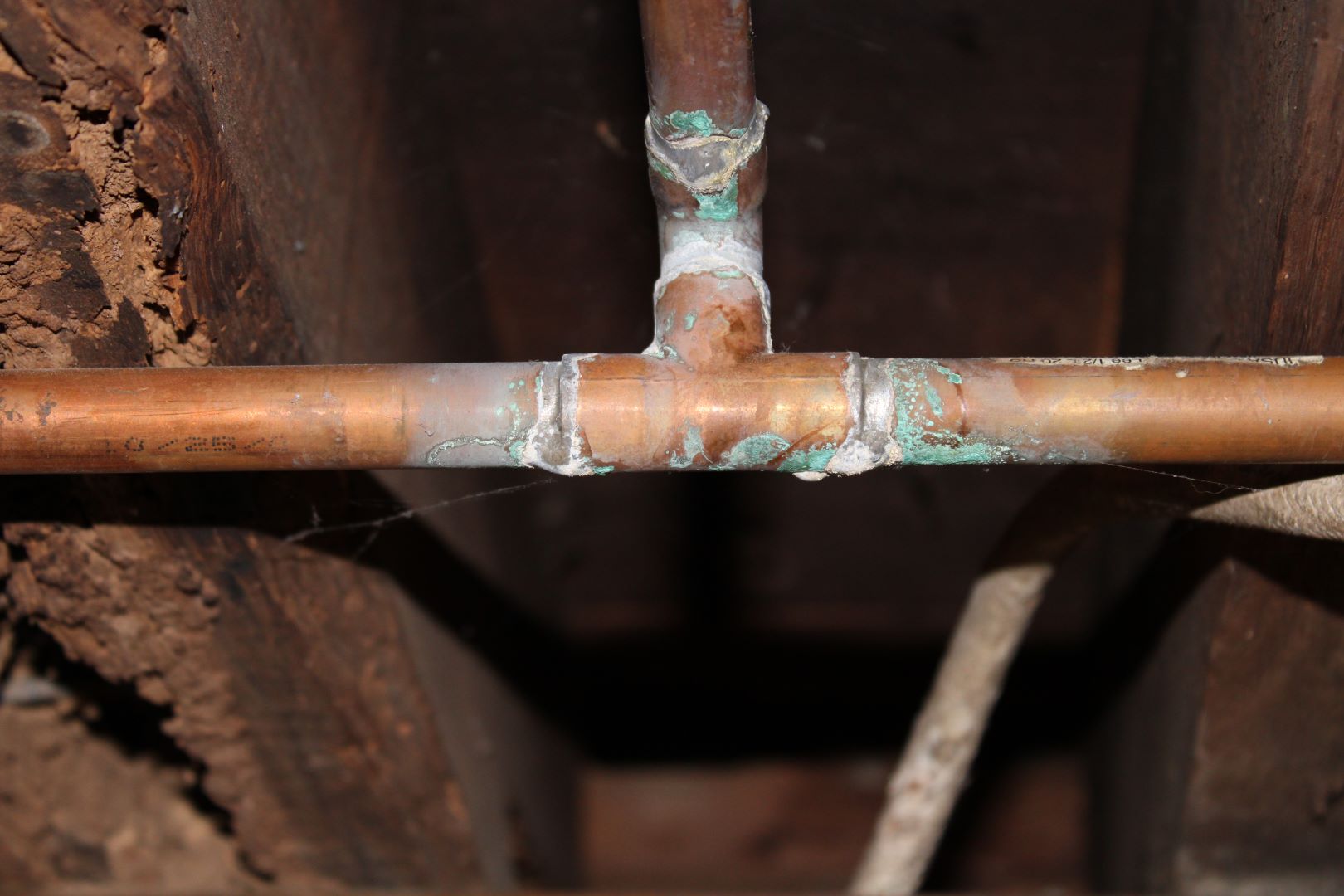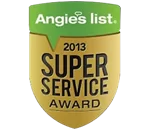Corroded and rusted pipes are a common issue that can lead to various plumbing problems. Everything from leaks and reduced water quality to complete pipe failure are all possible. Below, we’ll discuss everything you need to know about corroded pipes, including the causes, signs, prevention methods, repair options, and more.
What Are Corroded Pipes?
Corroded pipes are plumbing pipes that have deteriorated because of chemical reactions with their surroundings. This deterioration can occur both internally and externally, compromising the integrity of the pipes and affecting their functionality.
Types of Corrosion in Pipes
- Internal Corrosion: Occurs inside the pipes because of chemical reactions between the water and the pipe material.
- External Corrosion: Occurs on the outer surface of pipes due to exposure to moisture, chemicals, or soil conditions.
Common Materials Affected by Corrosion
- Metal Pipes: Common materials such as copper, galvanized steel, and iron are susceptible to corrosion.
- Non-Metal Pipes: Even plastic pipes can experience degradation over time due to exposure to certain chemicals or high temperatures.
Causes of Corrosion in Pipes
Understanding the root causes of pipe corrosion is crucial for effectively addressing and preventing this common issue.
1. Chemical Reactions:
- Hard Water: High mineral content in water can accelerate corrosion in pipes.
- Acidic Water: Low pH levels can corrode metal pipes over time.
2. Electrochemical Reactions:
- Galvanic Corrosion: Occurs when two different metals are in contact with each other and exposed to an electrolyte, such as water.
3. Environmental Factors:
- Moisture: Excessive moisture can promote corrosion, especially in humid environments or areas prone to flooding.
- Soil Conditions: Certain soil types, such as clay or acidic soil, can accelerate pipe corrosion.
Signs of Corroded Pipes
Corrosion in plumbing systems can lead to a host of issues, from water discoloration to leaks and reduced water pressure. Here are the most common signs to help you recognize and address corroded pipes before they begin to leak or even burst.
- Discolored Water: Rusty or brown-colored water coming from faucets indicates corrosion in the pipes.
- Low Water Pressure: Build-up of corrosion and mineral deposits inside pipes can restrict water flow, leading to reduced water pressure.
- Leaks: Corrosion weakens the pipe walls, making them more prone to leaks and ruptures.
- Foul Odors: Corrosion can create an environment for bacterial growth, resulting in foul-smelling water.
Corroded Pipe Repair
Luckily, corroded pipes can be repaired, depending on the extent of the corrosion and the type of damage present. Several repair methods are available, including:
1. Pipe Patching
- Epoxy Resin: Use epoxy resin to patch small leaks or holes in corroded pipes.
- Pipe Clamps: Apply pipe clamps or wraps to reinforce weakened sections of corroded pipes.
2. Pipe Replacement
- Partial Replacement: Replace only the corroded sections of pipes if the damage is localized.
- Full Replacement: If corrosion is widespread or severe, consider replacing the entire plumbing system.
3. Chemical Treatments
- Pipe Descalers: Use chemical descalers to remove corrosion and mineral deposits from the inside of pipes.
- Inhibitors: Apply corrosion inhibitors to protect metal pipes from further degradation.
4. Professional Assistance
- Plumbing Inspection: Schedule regular inspections by Ford’s Plumbing to detect and address corrosion issues early.
- Corrosion Testing: Conduct corrosion testing to assess the extent of damage and determine the most appropriate repair or replacement method.
Prevention of Pipe Corrosion
Corrosion in pipes can lead to costly repairs and water damage, making prevention all that more important. Let’s look at some preventive measures, including water quality testing, protective coatings, and proper installation practices, to help you mitigate the risk of pipe corrosion and ensure the longevity of your plumbing system.
- Water Quality Testing: Regularly test water quality to monitor pH levels and mineral content.
- Water Treatment: Install water softeners or filtration systems to reduce mineral content and acidity.
- Protective Coatings: Apply protective coatings to metal pipes to prevent direct contact with corrosive substances.
- Proper Installation: Ensure pipes are installed correctly and insulated to minimize exposure to moisture and other corrosive elements.
Frequently Asked Questions: Corroded Pipes
Q: What causes pipes to corrode?
Pipes can corrode due to chemical reactions with water, exposure to acidic or alkaline substances, galvanic corrosion from dissimilar metals, and environmental conditions such as moisture and soil composition.
Q: How can I tell if my pipes are corroded?
Signs of corroded pipes include discolored water, low water pressure, leaks, foul odors, and visible signs of rust or deterioration on the pipes themselves.
Q: Can corroded pipes be repaired?
Yes, corroded pipes can often be repaired using methods such as patching, chemical treatments, or partial/full replacement, depending on the extent of the corrosion and the type of damage present.
Q: How can I prevent pipe corrosion?
Preventive measures include water quality testing, water treatment systems, protective coatings on pipes, proper installation practices, and regular maintenance to address any issues promptly.
Q: Do plastic pipes also corrode?
While plastic pipes are less susceptible to corrosion than metal pipes, they can still degrade over time due to exposure to certain chemicals or high temperatures.
Q: Can corroded pipes affect water quality?
Yes, corroded pipes can lead to water discoloration and affect water quality by introducing rust, sediment, or contaminants into the water supply.
Q: Can pipe corrosion cause health problems?
Corroded pipes can compromise water quality, potentially leading to health problems if contaminated water is ingested or used for bathing. Prompt detection and repair of corroded pipes are essential for maintaining water safety.
Q: How often should I inspect my pipes for corrosion?
It’s recommended to schedule regular plumbing inspections to detect and address any signs of corrosion or deterioration. The frequency of inspections may vary depending on factors such as the age of the plumbing system and water quality.
Contact Ford’s Plumbing If You Have Corroded Pipes
Corroded pipes pose serious risks to plumbing systems and can result in costly repairs and water damage if left untreated. Regular maintenance, water quality testing, and prompt repairs are essential for preserving the integrity and longevity of plumbing pipes, ensuring a reliable and efficient water supply for years to come.
If you suspect you have a corroded drain pipe or corroded water pipe, contact Ford’s Plumbing and Heating for an online plumbing repair estimate and expert assistance.



















